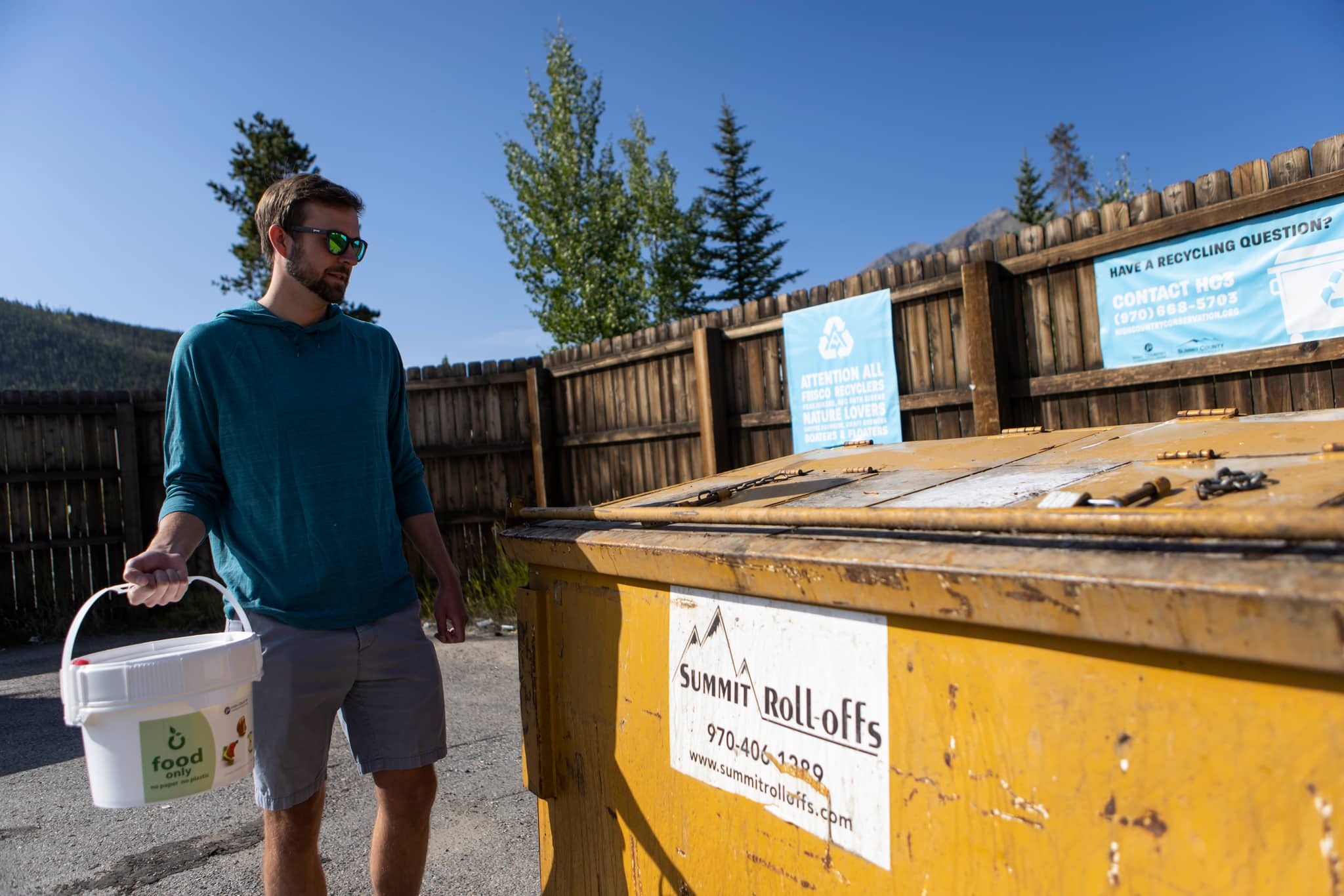
- High Country Conservation
- January 15, 2024
- Ask Eartha
Dear Eartha, what is a circular economy? Are there any local examples?
Great question, as this is a term that I hope we all hear more about in the future. Factors such as climate change, population growth, unsustainable lifestyles and dwindling resources are pressuring global economies to evolve. One such evolution is that circular economies are becoming a new guiding principle for companies and industries worldwide moving forward.
What is a circular economy?
When you think of the word “economy,” you might go into textbook mode and think about the production and distribution of goods and services. When we talk about circular economies, we’re focusing specifically on the “goods” – how they’re made and, importantly, remade.
If you imagine the lifecycle of stuff – whether clothes, skis, or the latest thingamabob – the process you might imagine is most likely linear: mining or harvesting of raw materials, manufacturing, and eventually, disposal. A circular economy is different. According to the US Environmental Protection Agency, ” A circular economy reduces material use, redesigns materials and products to be less resource intensive, and recaptures “waste” as a resource to manufacture new materials and products.” In this re-telling of the story of our stuff, the emphasis is on reusing, repairing, refurbishing, and recycling in order to extend the life of materials and products for as long as possible.
Circular Economies in our Backyard
The idea of a circular economy might seem pretty abstract, but there are real-life examples both here in Summit County and throughout the state.
What do you do with your food scraps? If you throw them away, you’re participating in a linear economy by sending a valuable resource into the landfill where it can’t be reused. There’s a better option! Locally, over 3,000 residents participate in the High Country Conservation Center’s (HC3) food scrap recycling program. The collected food scraps are composted at the Summit County Resource Allocation Park, and the finished compost is sold to businesses and community members.
This high-quality product is a great example of diverting a “waste” product and using it to create a new commodity…without ever having to leave county lines. In 2023 alone, your friends and neighbors helped divert over 400,000 pounds of food scraps from the landfill. You too can join this circular economy for free by filling out an application online at HighCountryConservation.org.
Glass recycling is another great example of a circular economy. Glass is infinitely recyclable, which means it can be recycled into new glass products over and over again without losing quality. This eliminates the need for raw materials to keep up with demand. Glass that gets collected in Summit County is taken down to the Rocky Mountain Bottling Company in Golden, Colorado where its repurposed into new bottles. Want to give your glass everlasting life? Recycle glass bottles and jars at one of the public glass recycling locations across the county; find the one closest to you on HC3’s website.
But what about plastic? Plastic recycling is more complicated, because not all plastics recycle well (like those darn berry containers). But innovative solutions to plastic recycling do exist, even in our community. Consider Breck Create’s Precious Plastic program, which takes clean, label-free plastic and turns it into usable objects, like jewelry, coasters, and carabiners. You can get involved by recycling your plastic or by taking a workshop to transform plastic waste into art. Learn more at Breck Create’s website.
Circular economics lays the foundation for sustainable living in a finite world. Through redesigning, reimagining, reducing, reusing, and repurposing, we decrease the environmental impact of consumption. And while all these -Rs are important, it’s equally to important to remember that the most impactful way to minimize stress on the environment is to focus on refusing what we don’t need. After all, there is no better way to minimize impact than by eliminating it entirely, one product at a time.
Ask Eartha is written by the staff at the High Country Conservation Center, a nonprofit dedicated to waste reduction and resource conservation. Submit questions to Eartha at info@highcountryconservation.org.
